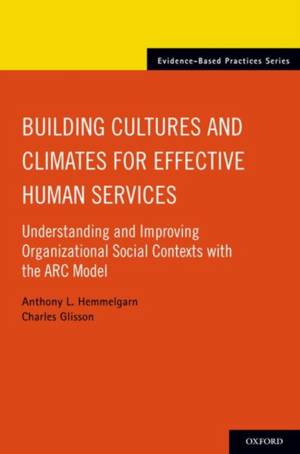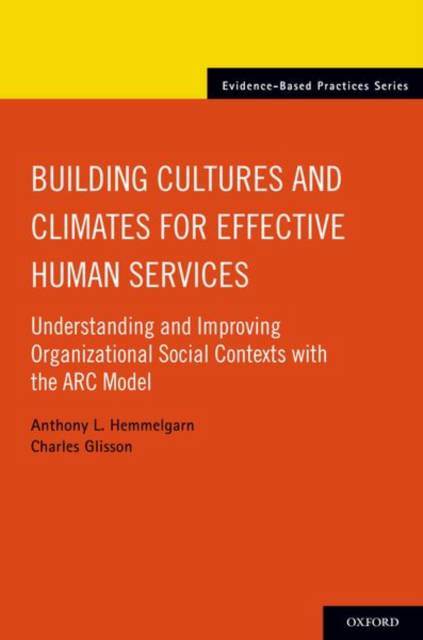
- Afhalen na 1 uur in een winkel met voorraad
- Gratis thuislevering in België vanaf € 30
- Ruim aanbod met 7 miljoen producten
- Afhalen na 1 uur in een winkel met voorraad
- Gratis thuislevering in België vanaf € 30
- Ruim aanbod met 7 miljoen producten
Zoeken
Building Cultures and Climates for Effective Human Services
Understanding and Improving Organizational Social Contexts with the ARC Model
Anthony L Hemmelgarn, Charles Glisson
€ 112,95
+ 225 punten
Omschrijving
It is widely acknowledged that many healthcare, behavioral health, and social service organizations provide less-than-optimal services and that the challenge of improving services depends on successfully changing organizational culture and climate. However, there are almost no organizational-level strategies that have been tested with randomized controlled trials. Building Cultures and Climates for Effective Human Services addresses the need for evidence-based organizational strategies for improving human service quality and outcomes by uniquely describing the authors' own case examples, nationwide studies, and randomized controlled trials to explain how organizational culture and climate can be assessed and changed. The two authors use their decades of research and practice experience in assessing and changing human service organizations to explain how organizations can improve the services they provide using the authors' ARC model, which effectively removes service barriers and supports the implementation of evidence-based practices and other innovations. The book also blends case examples with research from nationwide studies, regional experiments, and randomized controlled trials to explain the ARC model of organizational effectiveness and how it works to improve services. It provides a balance between theory, empirical research, and actual case examples to help researchers, organizational consultants, administrators, and service providers gain a practical understanding of how culture and climate affect services and how they can be improved. Furthermore, the text describes the three ARC strategies, each composed of multiple elements, to: (1) embed key organizational principles, (2) implement core organizational component tools, and (3) apply mental models to alter shared reasoning and beliefs that affect success. No other organizational-level strategies for improving services have been so well documented and tested.
Specificaties
Betrokkenen
- Auteur(s):
- Uitgeverij:
Inhoud
- Aantal bladzijden:
- 248
- Taal:
- Engels
- Reeks:
Eigenschappen
- Productcode (EAN):
- 9780190455286
- Verschijningsdatum:
- 13/08/2018
- Uitvoering:
- Paperback
- Formaat:
- Trade paperback (VS)
- Afmetingen:
- 155 mm x 231 mm
- Gewicht:
- 358 g

Alleen bij Standaard Boekhandel
+ 225 punten op je klantenkaart van Standaard Boekhandel
Beoordelingen
We publiceren alleen reviews die voldoen aan de voorwaarden voor reviews. Bekijk onze voorwaarden voor reviews.







